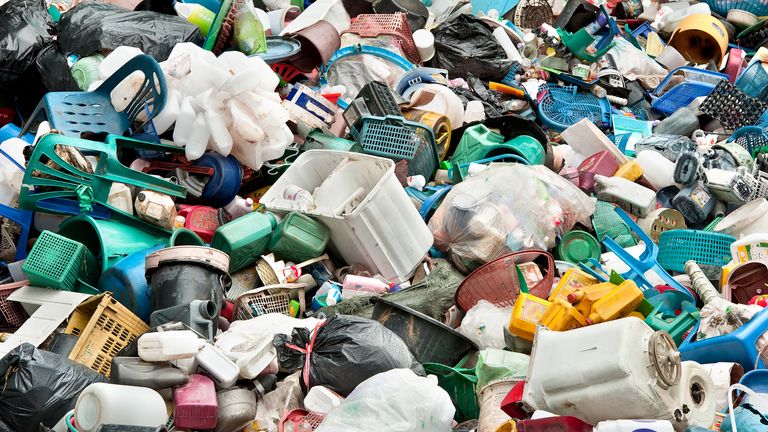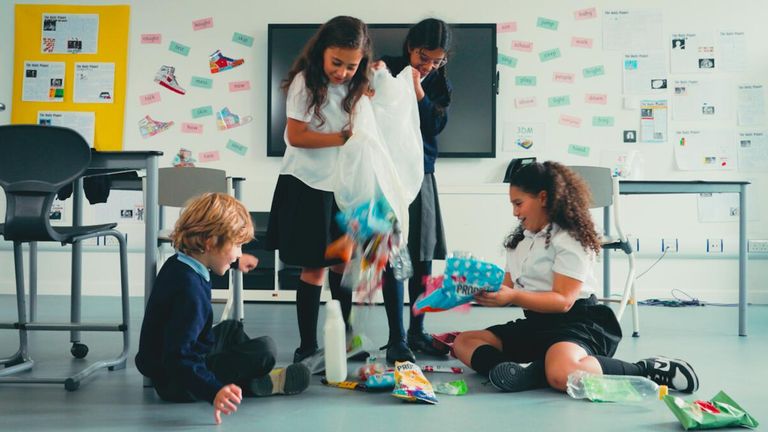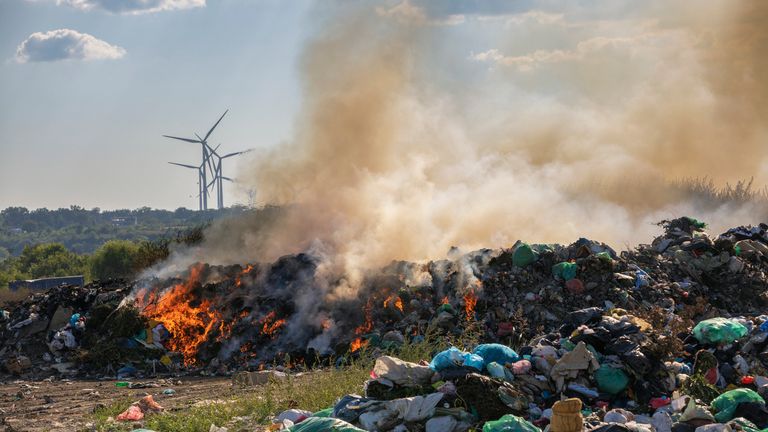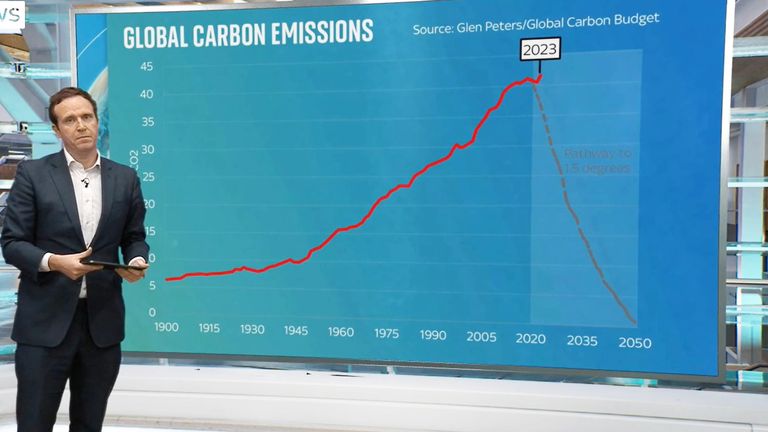Plastic crisis 'out of control' as 1.7 billion pieces thrown away weekly in UK
The most commonly counted plastic items thrown away were packaging for snacks, fruit and vegetables.
Wednesday 17 April 2024 07:20, UK
Britons are throwing away an estimated 1.7 billion pieces of plastic a week - with campaigners describing it as a crisis "out of control".
The typical household disposes of 60 items of plastic packaging every seven days - equating to a national total of 90 billion a year.
More than 225,000 people took part in The Big Plastic Count and kept track of their waste.
Packaging for snacks, fruits and vegetables was most counted.
Greenpeace and Everyday Plastic - which performed the research - says the UK throws away more plastic per person than every other country in the world, barring the US.
Just 17% of plastic remnants were recycled compared with 58% being incinerated, the study suggests.
Greenpeace noted that incinerated plastic releases more carbon dioxide per tonne than burning coal - exacerbating climate change - and the continued use of incinerators is "incompatible" with the government's pledge to reach net zero by 2050.
Frustrated with the lack of progress since the first count in 2022, Greenpeace UK and Everyday Plastic appealed to Westminster and supermarkets to "show leadership" at the Global Plastic Treaty negotiations held in Canada later this month.
They urged policymakers to call for a legally binding global target to cut plastic production by at least 75% by 2040.
Campaigners are also urging the government to speed up the introduction of innovative reuse and refill systems, end approvals for new incineration plants, and completely ban all plastic waste exports by 2027.
Greenpeace UK political campaigner Rudy Schulkind said evidence from the Big Plastic Count shows the plastics crisis was "out of control" with production "set to triple by 2050 if the industry has its way".
He added: "The worst affected are marginalised communities, who are more likely to live near incineration sites or to be harmed by the waste we dump in countries in the Global South."
Laura Burley, who led the project, said: "If I started counting every bit of plastic packaging the UK throws away in a year, it would take me until 2077 to count every piece."
She added while the challenge of fixing the issue could feel "overwhelming", there were "solutions out there" provided politicians and big businesses get on board.
One participant of the count said she was "shocked" when receiving the results.
Chloe Scrivener from Dorset said: "I want to be part of a real solution because, although I believe we should all feel a sense of responsibility for our planet and its future, I'd like the government to make bigger changes and act more quickly, for the future generations like my son, and the wildlife, as there's so much plastic everywhere and it's so harmful."
Be the first to get Breaking News
Install the Sky News app for free


A Department for Environment, Food and Rural Affairs spokesperson told Sky News it was "pushing ahead" to reach its 2050 goal of eliminating avoidable waste.
They added: "We've already taken billions of plastic bags out of circulation, banned plastic straws, stirrers and cotton buds and support proposals for a new legally binding plastics treaty to end plastic pollution."








